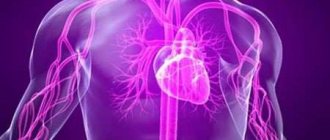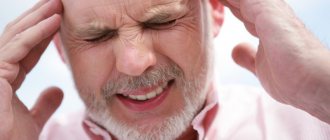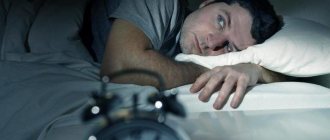How long does depression last? Certain indicators There is no duration of depression. The period of manifestation of symptoms of mental disorders of this category is influenced by many factors.
These include the form of existing depression, the individual characteristics of the patient’s mental state and the presence of concomitant diseases of the nervous system.
In some cases, psycho-emotional disorders are limited to certain periods, but they cannot fully comply with them.
How to treat chronic depression? Find out about this from our article.
Everyone loves to discuss depression, for example, over drinks. But what do we really know about her?
More than 300 million people worldwide suffer from depression today.
It is one of the most common mental illnesses and the leading cause of disability in the world, according to the World Health Organization (WHO). According to these data, about 800 thousand people commit suicide every year due to depression, and it is the second leading cause of death among young people from 15 to 29 years old. In addition, depressive states affect performance and, most importantly, quality of life.
So it's not just a bad mood?
No, this is a very real disease. And it’s serious. Most scientific theories say that depression occurs due to a lack of neurotransmitters - the universal "messenger substances" - that transmit signals in the brain from one nerve cell to another. This is why people suffering from depression see the world in dark colors—literally. Neurotransmitters are involved in the functioning of the organs of vision, hearing, and the formation of tactile and temperature sensations.
Without these substances, the information that reaches the brain is distorted, favorite activities cease to be enjoyable, and music is heard differently. In addition, concentration and memory function decrease: in a depressed state, it becomes more difficult to remember something good.
The theory of the connection between depression and neurotransmitters has a lot of indirect evidence, but so far it does not have indisputable evidence. This is because neurotransmitters are very small. Tracking them in the body and thoroughly examining them is expensive and difficult.
Depression before menopause: treat with hormones or antidepressants?
Premenopausal and menopausal periods are accompanied by numerous symptoms, which in themselves can cause a lot of negative emotions and feelings in women.
The peculiarity of menopausal depression is that it appears against the background of premenstrual depression; symptoms intensify 2-3 years before menopause, especially if women have a history of episodes of postpartum depression. Hormone replacement therapy can help relieve many symptoms. But most often this category of women falls into the group of patients with other mental disorders, and the main treatment in the form of antidepressants is prescribed by a psychiatrist. Gynecologists sometimes treat this type of depression with estrogen drugs, but most psychiatrists do not recognize this type of treatment.
Reproductive depression is a new diagnosis, but this formulation is likely to be met with hostility by most psychiatrists, because the dominant role in the occurrence of this condition is given to the function of the ovaries, about which psychiatrists have a superficial understanding. Gynecologists will also rarely make this diagnosis, since the word “depression” causes an association in most of them with mental illness. How many years it will take for the female body to begin to be perceived as a whole, taking into account the work of the reproductive organs, is unknown. Obviously, women will have to “sit” on antidepressants for a long time.
So what happens with depression?
Depression consists of many symptoms, among which the main ones are: apathy - a persistent decrease in motivation, anhedonia - lack of pleasure from what brought it before, as well as loss of strength (asthenia).
Another sign of depression is anxiety. This is a universal “flag” of the body that makes it clear that something is going wrong. Each of these symptoms is the result of an imbalance of neurotransmitters in brain cells, primarily serotonin. If symptoms persist for 3-5 weeks, it’s definitely time to see a psychiatrist.
Why does depression last for 2 days for some, while for others it lasts for several years?
How long depression lasts depends on the characteristics of the body, the form of the disease, and the timeliness of treatment. The duration of this pathological condition varies from several months to 5 or more years; possible chronic course.
What determines the duration of the disease?
The duration of a depressive episode varies depending on a number of factors:
- The root cause of depression. The duration of forms of depression caused by endogenous factors is longer than that of psychogenic variants. In addition, the disease in such cases is more severe.
- Timeliness of treatment. Only 20-30% of patients manage to overcome the disease on their own. The longer mental pathology progresses, the worse the patient’s well-being becomes. Treatment for advanced variants will require more time. It is difficult to cure chronic forms; in these cases, the disease can be observed for many years, characterized by periodic exacerbations lasting from several weeks to 2-3 months.
- The severity of the disease. Light and medium forms are shorter in duration than heavy ones.
- The presence or absence of concomitant mental disorders.
- Individual characteristics. Depression persists longer in women who are more susceptible to hormonal changes.
How long does depression last?
The duration of the disease depends on the type and provoking factors:
- Postpartum depression. In young mothers, with timely initiation of therapy, it can be cured in 3-6 months. If measures to eliminate the disorder were not taken in a timely manner, a depressive state can be observed for several years and provoke the occurrence of other abnormalities.
- When giving up alcohol, drugs, smoking. Most often, this condition resolves over a period of several days to 2-3 months. Sometimes, however, it remains for several years. The illness lasts longer if it is complicated by the occurrence of other disorders resulting from alcohol dependence.
- After a binge. Depression after binge drinking continues from 2-3 days to a year. Males are more susceptible to this type of disease.
- During menopause. The condition is often complicated by manifestations of neurosis, hormonal imbalances, and psychological problems associated with changes occurring in the body. The depression will last from 1 to 5 years.
- After divorce, separation . More often, these factors cause the disorder in girls. The duration is individual. The social adaptation of someone who has separated from their partner is of great importance: if a person lacks communication, there is no opportunity to improve his personal life, the disease can persist for several years.
On average, it lasts from 6 to 8 months, according to various sources.
What to do if the illness persists
You should not self-medicate, it can harm your health. If the selected treatment is ineffective, the disease can last for years:
- You should consult a psychiatrist. The doctor will make an accurate diagnosis, prescribe suitable antidepressants, and prescribe an individual dosage. If necessary, medications can be replaced during therapy.
- Psychotherapy will also be required. Cognitive behavioral therapy is effective. This technique helps to identify destructive attitudes and behavior patterns and replace them with positive ones.
- The support of your close circle is important. You cannot devalue the patient’s problem, deny the existence of the diagnosis, blame him or get angry because of the presence of a mental disorder. Need support. Social adaptation is of great importance: due to pathology, a person can interrupt communication with friends. To prevent bad thoughts and feelings from aggravating a person’s condition, you should protect him from possible stress, do not start conversations with him about your own problems, and do not compare circumstances.
- You should stop taking stimulants. Alcoholic drinks, drugs. They can aggravate the condition and are often incompatible with medications.
- There was a sufficient amount of vitamins in the diet. Because vitamin deficiency increases the severity of manifestations.
Consequences of prolonged depression
If depression lasts too long, quality of life deteriorates. Since this condition deteriorates performance, a person may lose his job or lose his place of study. It is possible to stop communicating with close friends, or to part with a lover due to illness.
Often the causes of mental illness are related to the functioning of the brain. If left untreated, various mental disorders may appear. Suicidal tendencies appear. Destructive behavior and the emergence of bad habits are possible: after intoxication, symptoms often temporarily weaken, which attracts the patient.
Source: https://eustress.ru/depression/skolko-dlitsya-depressiya
All the pros and cons of inpatient treatment
People around a sick person try to persuade him to “get treatment in the hospital.” But the good intentions of relatives do not always come to fruition. One group of patients begs for hospitalization, another fights fiercely against it. Family members should listen to the advice of the attending physician and follow them strictly.
Hospital is contraindicated for anxious and suspicious patients.
The conversations of neighbors in the ward about their ailments increase their anxiety and plunge them into the abyss of panic, taking away sleep and “rewarding” them with a constant squeezing or bursting headache. They begin to “listen” to the work of the body and look for new incurable diseases. Such behavior leads to physical and mental exhaustion, and treatment becomes a waste of time and effort of medical personnel.
Elderly patients over 65-70 years old have a trail of age-related pathology. Angina pectoris and ischemic heart disease, hypertension with severe crises, diabetes mellitus in the acute stage and the consequences of acute cerebrovascular accident prevent hospitalization in a psychiatric institution. Its purpose is to treat mentally ill people. There are no intensive care units and resuscitation doctors, emergency cardiac care and cardiologists in such a hospital.
If a patient with an anxiety-depressive disorder does not express suicidal thoughts, accepts food and refuses hospital treatment, the psychiatrist has no right to resort to violence and succumb to the persuasion of family members. This group of patients visits the outpatient department of a psychiatric dispensary and takes the prescribed therapy.
Mutual trust, the absence of unauthorized changes in drug doses or refusal of them help to extinguish the severity of depression and result in a persistent improvement in the condition. The caring attitude towards a sick person on the part of loved ones, their support and faith in healing have an undeniable positive result.
Myth 1. Depression is not a disease, so there is no need to treat it
There is a common belief that depression is nothing, a matter of everyday life and happens to everyone sometimes. Or even someone has nothing to do, so he shows off. This is not a disease at all, it’s just that the person himself gives vent to his bad mood. And since it’s not a disease, but some kind of self-indulgence, then no medications for depression are needed.
The optimists will have to be disappointed. Depression is a real disease. And the disease is serious, even with a possible fatal outcome. It’s not for nothing that the majority of suicides are attributed to mood disorders. Of course, a person can cope with a mild form of depression on their own, but in severe cases, without treatment, depression can last for years, intensify and develop into something even more severe, for example, manic-depressive psychosis.
Here everything is like with any other disease, for example, with the flu: you can “lie down”, you can even “move on” according to the principle “it will go away on its own”, but there is always a risk that without professional help the matter will end in serious complications and hospitalization. In general, it is better to see a doctor right away, and let him decide what is necessary now - drink tea with honey or immediately take antimicrobial medications.
It's the same with depression. A person cannot independently assess his condition. Unlike the flu, which literally everyone has experience in treating, even friends and relatives will not help with depression. You need to contact a specialist. This is where another malignant myth emerges.
What to do if the illness drags on?
Long-term depression must be treated . Only a specialist can select the optimal course of therapy based on a full examination of the patient.
In most cases, treatment is limited to psychotherapy and special medications. Severe forms of depression cause the patient to be hospitalized.
Recommendations for long-term symptoms of depression:
- It is imperative to consult a specialist (psychologist, psychiatrist, psychotherapist).
- Procedures that can be carried out independently at home (trainings to increase self-esteem, combat bad thoughts, etc.) will help speed up the process of getting rid of the symptoms of depression.
- Regular physical activity has a beneficial effect on the psyche (you can not only play sports, but also accustom yourself to basic exercises in the morning).
- It is necessary to use many ways to distract yourself from negative thoughts (adjusting your social circle, watching films that have a positive effect on your emotional state, etc.).
- Elimination of bad habits (smoking and drinking alcohol can increase the manifestation of depression and cause a long-term lack of tendency to recovery).
- If depression is provoked by certain character traits, then to prevent it it is necessary to take sedatives (prescribed by a doctor).
If symptoms of depression persist for a long time, it is necessary to undergo examination by a specialist .
Dysthymia can be the cause of constant emotional distress. This pathology does not impair a person’s performance, but is accompanied by chronic bad mood.
The most common provoking factors are certain character traits. Regardless of the form of depression, timely medical assistance is a must to eliminate it.
Long-term depression. What to do? Find out from the video:
The main symptoms of depression are manifested by the so-called depressive triad:
Hypotymia is a persistent, more than two weeks, decrease in mood, which is expressed by melancholy, depression, sadness, apathy;
Ideational inhibition – decreased attention, ability to perceive and comprehend what is happening, slowed speech and lack of spontaneous speech;
Myth 2. If you suffer from depression, it means you are crazy and your place is in a madhouse
Now a word to the pessimists: depression is horror, horror, horror and a shame for life. The patient will definitely be put “in a psychiatric hospital”, in which they will be terribly tormented. Then they will inform you at your place of work, register you with a mental hospital, and your life will end there.
Firstly, depression, like any other disease, cannot be shameful. This is not the person’s fault, but a misfortune that happened to him. Being ashamed of her is the last thing.
Secondly, even with chronic depression, people are often hospitalized not in psychiatric hospitals, but in crisis centers, which in essence are more like a sanatorium rather than a hospital. Thirdly, they can be registered with a mental hospital (which is really not a problem) only in the case of repeated emergency hospitalizations with a suicide attempt.
Of course, everything also depends on luck - there are such crisis centers that the Gestapo dungeons are resting. There are times when people rush back to “rest.” There are psychiatrists who are understanding and competent, but there are others who make you run into the forest from them. But this applies to any field of medicine.
By the way, it is now simply forbidden to enter a diagnosis on a sick leave certificate. If you are concerned about the very name of the hospital “psychiatric” on your sick leave, then you can also omit it by agreement with the hospital management. There is always a stamp that only indicates the number of the hospital without specialization.
How long does depression last in women?
How long does depression last? specific indicators for the duration of depression. The period of manifestation of symptoms of mental disorders of this category is influenced by many factors.
These include the form of existing depression, the individual characteristics of the patient’s mental state and the presence of concomitant diseases of the nervous system.
In some cases, psycho-emotional disorders are limited to certain periods, but they cannot fully comply with them.
How to treat chronic depression? Find out about this from our article.
Myth 4. Antidepressants are dangerous to health
This, I must say, is not entirely a myth. Even modern, fairly humane drugs designed to combat depression can have side effects, although psychiatrists try to choose treatment so as not to aggravate the troubles of their patients.
Most often, antidepressants cause headaches, dizziness, sweating, palpitations, increased sensitivity to light, loss of sexual desire, drowsiness, decreased or, conversely, increased appetite.
Most of all, patients are afraid of the latter. It is believed that taking antidepressants can cause a person to gain excess weight. But this is also possible with depression itself. Some people fear a loss of sexual desire, but even with depression it is difficult to be a sexual giant. In addition, side effects disappear immediately after the end of the course of treatment, and depression with its unpleasant symptoms can last for years.
Clinical picture of depression
The main symptoms of depression are manifested by the so-called depressive triad:
Hypotymia is a persistent, more than two weeks, decrease in mood, which is expressed by melancholy, depression, sadness, apathy;
Ideational inhibition – decreased attention, ability to perceive and comprehend what is happening, slowed speech and lack of spontaneous speech;
Motor retardation – stiffness, lethargy to the point of stupor, reluctance to move, worsening reactions.
In addition to these obligatory signs of depressive conditions, there is high variability in other symptoms. Moreover, for different types of depression, the predominance of certain manifestations is typical.
Suppression of urges:
- anorexia – loss of taste for food, loss of appetite;
- decreased or loss of libido (frigidity), loss of the ability to achieve sexual satisfaction;
- suppression of the instinct of self-preservation;
- loss of interest in life and communication.
Other mental symptoms:
- decreased self-esteem, pessimism in assessing one’s own past, present, future;
- self-accusation, self-abasement, thoughts about one’s worthlessness and insignificance;
- avoidance of contacts and suffering from loneliness;
- sleep disturbance – insomnia or increased sleep duration, lack of feeling of sleep.
Somatic disorders:
- weight loss;
- dry and dull skin, peeling, brittle hair and nails;
- increased blood pressure, tachycardia;
- menstrual irregularities;
- dyspeptic disorders.
Depression does not occur spontaneously, but develops gradually. Moreover, the first signs of the disease are sufficiently erased. Therefore, in the best case, patients turn to doctors only after the entire depressive triad has clearly formed.
How does depression begin?
Unmasked depression begins with a deterioration in well-being: weakness, fatigue, increased sensitivity to previously undisturbed stimuli, headaches, and attacks of tachycardia. There are early awakenings, vulnerability, and tearfulness.
Another striking sign is the loss of a sense of satisfaction and joy. Often there is a rejection of habits that previously brought pleasure - treats, meeting with friends, playing sports, etc. Everything that used to be interesting now causes boredom, and there is no desire to do what you love.
A pessimistic view of things appears, self-confidence is lost, and periodic attacks of vague discomfort appear. A desire for privacy arises, and distance from loved ones occurs.
Development of depression
Further, all manifestations worsen: attacks of melancholy become more frequent and lengthened, physical retardation becomes more pronounced, desire decreases until libido fades. Speech becomes impoverished, becomes monosyllabic, “dull,” and slow. Professional skills are partially lost.
Women have a tendency to self-blame. They consider themselves incapable of professional activity, unsuitable for family relationships, and incompetent in terms of raising a child. During this period, daily mood swings are common, with patients feeling worse in the morning than in the evening.
Worsening of the condition
Without appropriate treatment, depression becomes even more severe. Melancholy becomes unbearable and is often combined with anxiety and lack of feelings. Deterioration in memory, perception, and ability to think clearly becomes obvious. The person realizes the loss of his abilities and sharply regrets them. There may be an exaggeration of once-committed offenses.
The appearance changes - the condition of the skin worsens, its turgor decreases, it becomes pale, sometimes even blue, and flakes off. Nails break, hair becomes dull. Patients stop taking care of themselves. Women often experience disruptions to their monthly cycle, leading to the onset of amenorrhea. Somatic symptoms include tinnitus, pain, heaviness in the head, and a feeling of coldness in the extremities.
How long does depression last?
Depressive states can last from several months to several years. The longer and more complex the disease progresses, the more severe the consequences of depression.
On average, a depressive episode lasts 6-8 months, but much depends on the type and pattern of the disease. According to various sources, recovery occurs:
- in 40% of patients – within three months;
- 20% - within six months;
- 20% - within a year;
- in 15% - for two years or more;
- in 5% - after 5 years.
As a rule, conditions caused by endogenous factors last longer and are more severe. Accordingly, depression of psychogenic origin passes faster. It is worth noting that the number of cases of independent recovery from depression is small - no more than 20-30%.
We recommend that you be wary of advice to “throw yourself into your work.” As for other “effective” recommendations, for example, “eat something delicious, do fitness, go to friends,” unfortunately, in many cases, patients are simply not able to follow them. The best cure for depression is a good doctor.
Having problems? We are waiting for you! Our phone
Source: https://psyclinic-center.ru/articles/klinicheskaya-kartina-depressii
Myth 5. Antidepressants are addictive
There's not even anything to say here. Neither the old antediluvian ones, nor even more so the modern mild antidepressants, cause physiological dependence, except psychological dependence. But it doesn’t cause psychological dependence. Then we need to talk about the dangers of ascorbic acid. Look how the kids are getting hooked! They always ask moms in pharmacies for “big, tasty pills.”
When Depression Calls "SOS"
Deep depression does not like theatrical performances. She does not share her thoughts, does not scream about her unwillingness to live, and does not blackmail with demonstrative antics. A depressed patient plunges into a painful inner world, in which hopeless blackness negates even the faintest hope for the possibility of joyful changes.
The need for food disappears, and the patient is like a mummy with a dull gaze and a mournful expression on his face. And he harbors terrible thoughts. Neither family, nor children, nor elderly parents can stop him from his obsessive desire to leave their lives.
In this situation, delay in hospitalization is criminal and can end in tragedy.
The patient is not asked about his desire to be treated. He does not adequately evaluate the world around him. He decided everything for himself, and his family will not be able to follow the rapid development of events. Trouble lurks constantly, 24 hours a day.
General information for patients and their relatives
The duration of the course is determined exclusively by the attending physician, based on the specifics of the disease, individual characteristics of the body and susceptibility to therapy! There are no strictly regulated periods for the treatment of certain diseases. In different patients with the same “diagnosis” we observe different treatment periods and even different treatment results.
The patient or his relatives should not interfere with treatment with their insistence on changing the timing and intensity of treatment. But, as practice shows, this does not always work out.
A significant part of patients and especially their relatives are prone to manipulation regarding the timing and intensity of therapy in the direction of increase. By exaggerating the severity of the symptoms they tell the doctor about, through their own requests and their fears of worsening their condition, they try to delay the moment of discharge from the hospital.
Conversely, many patients (less often their loved ones) try to influence the doctor to shorten the duration of therapy. Patients have the right to refuse necessary treatment on their own initiative, and doctors in this case cannot do anything (except try to dissuade them).
Relatives and relatives of patients should not be frightened by seemingly long (or short) treatment periods. The recommended duration of therapy is aimed at defeating the disease and ensuring that painful attacks do not return.
Separately, it should be said about those cases when doctors cannot accurately predict how long they will need to stay in the hospital for treatment. This can happen with new-onset psychoses with unknown causes and mechanisms of development, nervous breakdowns, and reactive states.
In such situations, doctors determine the need to continue treatment daily, based on the dynamics of the condition. Patience will be required from the patient's loved ones.
Average duration of treatment
Below we present the average statistical time of treatment in a psychiatric and psychotherapeutic clinic for various mental illnesses and behavioral disorders, as well as the duration of therapy after discharge from the hospital.
Data taken from real clinical practice . We remind you that these deadlines are not standards!
| Disease | Degree of severity, severity of the condition | Wed. length of hospitalization | Wed. terms of treatment after discharge from hospital |
| Psychosis | heavy | 60 days | 2 years |
| moderate severity, first-time acute psychosis | 30 days | 12 months | |
| mild psychotic symptoms, exacerbation of chronic psychoses | 10 days | 6 months, with chronic psychoses many years | |
| Borderline mental disorders (neuroses, personality disorders, reactive states) | severe symptoms | 30 days | 12 months |
| average severity of symptoms | 10 days | 6 months | |
| mild symptoms | several days (1-5) | 30 days | |
| Panic attacks, anxiety disorders | long-term anxiety disorders, phobias, generalized anxiety disorder | 30 days | 1.5 years |
| mixed anxiety and depressive disorder, neurasthenia | 15 days | 12 months | |
| panic attacks newly diagnosed | 10 days | 6 months | |
| Depression | severe depression, depression with psychosis, suicidal behavior | 45 days | 12 months |
| moderate severity of depressive symptoms, first-time depressive attack | 30 days | 9 months | |
| mild depressive symptoms | 10 days | 4 months | |
| Organic mental disorders (consequences of traumatic brain injuries, neuroinfections and intoxications, vascular disorders of the brain, etc.) | severe psychoses with delusions and deceptions of perception | 45 days | 2 years |
| “organic” psychoses of moderate severity, acute psychoses due to dementia, delirium | 30 days | 12 months, for dementia - constant monitoring throughout life | |
| organic personality disorder, borderline “organic” disorders (sleep disorders, mood disorders, movement disorders) | 21 day | 12 months | |
| asthenic condition | 10 days | 6 months | |
| Schizophrenia, schizoaffective disorder | 30 days | constantly | |
| Alcohol addiction | alcohol dependence in combination with mental disorders, 3rd stage of alcohol dependence | 30-45 days | 2 years, at stage 3 – for life |
| 2nd stage of alcohol dependence | 21 day | 12 months | |
| Stage 1 and beginning of stage 2 of alcohol dependence | 10 days | 12 months | |
| Withdrawal from binge drinking, relieving poisoning, eliminating a hangover, sobering up (these measures are not treatment for alcohol addiction) | 1-2 days | No | |
| Drug addiction | 2nd and 3rd stages of addiction, concomitant mental disorders | 45 days | 3 years |
| 2nd stage of addiction with preserved criticism of the disease, rehabilitation potential | 30 days | 3 years | |
| 1st stage of addiction | 10 days | 12 months |
As can be seen from the table, for mental disorders and behavioral disorders, the average treatment time after discharge from hospital is long: calculated in months and even years.
Different treatment methods have their own duration of use.
Duration of pharmacotherapy (medication)
Pharmacotherapy in the treatment of mental disorders and behavioral disorders is divided into:
- Active. It is usually carried out for a limited period of no more than 1-2 months to relieve the painful condition.
- Supportive. It is carried out after the condition has stabilized. Can last for months and years .
Groups of drugs such as tranquilizers and neurometabolic therapy are used in short courses, while antidepressants, mood stabilizers, and antipsychotics can be used for a long time (if necessary, throughout life).
Duration of non-drug treatment
Physiotherapy is applied in limited courses (from 10 to 30 days), which can be repeated (for example, in spring and autumn).
Psychotherapy is a long-term treatment method. For example, the average course of such a common type of psychotherapy as cognitive behavioral therapy takes several months. Although there are also one-time psychotherapeutic sessions and trainings designed for one or several sessions (the so-called short-term psychotherapy).
How long does depression last in men and women?
The word "depression" used in everyday life can mean a depressed state caused by some event. But negative emotions are quickly replaced by positive ones. This condition usually goes away within a few days, rarely lasting more than a month.
Scientifically speaking, depression is a mental health disorder. She manifests herself as prolonged despondency, negative thoughts, and inappropriate behavior. Accompanied by headaches and insomnia. If diagnosed early, it responds well to treatment.
Causes and symptoms
Usually a person realizes that he is depressed. It is characterized by three main features:
- depressed mood and inability to experience joyful emotions;
- negative thoughts;
- decreased activity.
There are many reasons why it occurs. This could be a divorce, a breakup, the death of a friend or relative, a serious illness, or loss of a job. It is important to recognize this condition in time and consult a specialist.
The period of depression is individual for each person. Some are freed from it after just a few months, while others suffer for years. In rare cases, it is practically untreatable.
Factors influencing duration
Sometimes a person may have the impression that such a depressed state will last forever. Of course, no one can say exactly how long depression lasts. This is influenced by several factors:
- Heaviness. Its mild and medium forms last up to 9 months. Most people cope with depression on their own. If the form is severe, then you cannot do without the help of specialists.
- Cause of occurrence. Usually depression recedes if the cause that caused it is removed. For example, depression is caused by job loss. It is logical to expect that it will pass when a person finds a new one. If depression arose due to the death of a loved one, then relief will come only after a year. In cases where the cause disappears, but the depressed state remains, it means the depression is physiological in nature. To get rid of it, you will need to take medications. When the problem lies in childhood psychological trauma, a deep and thorough study with a psychotherapist is necessary.
- Treatment. It includes medication and psychotherapy. If depression appears due to psychological reasons, it will not be possible to cure it only by taking pills. With regular therapy, you can fully recover after six months, but this is an approximate time frame.
- Timely contact with a specialist. The sooner a person consults a doctor, the more effective the treatment will be. If you postpone a visit to a psychologist, the condition will gradually worsen. Then you will have to look for reasons for a long time and deal with the accumulated load.
It is also necessary to take into account your personality type. If a person has a sensitive psyche, he quickly gets involved in the problem, worries actively and for quite a long time.
Features of female and male depression
Representatives of the fairer sex are more emotional. It is easier to unsettle them and make them feel worthless, so they are at risk. Women often suffer from prolonged depression.
They occur during menopause, pregnancy or childbirth. Various psychological traumas bring them more suffering than men.
Let's consider how long depression can last in women during the period:
- Divorce. A woman can worry about separation for about two years. Creating a new family can shorten this period.
- Postpartum depression. It can go on for years. It is aggravated by the development of psychological disorders. With timely treatment, you can get rid of it in six months.
- Refusal of alcoholic beverages. This decision may also cause depressed feelings. It is impossible to say exactly how many days depression associated with alcohol withdrawal lasts. But usually this is no more than a month. If there is a mental illness associated with alcoholism, then a state of depression can be observed for several years in a row.
- Parting with a loved one. Here everything will depend on the age and individual characteristics of the woman. In severe cases, the condition persists for years.
- Menopause. A depressive state can last from a year to 5 years.
It is worth noting that depression in men is 10 times less common. They are taught from childhood to control their emotions, but no matter how hard they try, a depressed state still arises.
Depression most often affects men:
- previously suffered from this disease;
- having relatives susceptible to depression;
- having low levels of income.
Men with severe illness are also susceptible to depression. For example, if there is cancer, diabetes, AIDS and the like. Symptoms of depression due to illness can last for several months.
Features of male depression are aggression, craving for alcoholic beverages and inappropriate behavior. They rarely admit to their condition, so the disease may go untreated for a long time. Mostly men are affected by:
- Major depression. It interferes with work, sleep, and leading a normal lifestyle. Her symptoms are vivid and last for several months.
- Dysthymia. Its symptoms are milder than those of major depression, but the duration is much longer.
- Bipolar disorder. The person is either depressed or euphoric.
Taking antidepressants and psychotherapy helps get rid of depression in men.
Teenage depression
Adolescence is the most difficult period in a person’s life. Boys and girls are trying to find themselves, so they are often in a stressful state. They may worry about their first love, worry about quarrels in the family, but this period must be passed. This condition lasts from a couple of weeks to several months.
Often teenage depression is not treated in a timely manner. Sometimes the parents themselves are to blame for this. They simply attribute symptoms of depression to a difficult age. In some cases, teenagers try to drown out their depressed state by using drugs and alcohol.
Depression in older people
It is generally accepted that depression in old age is quite common. This statement is not true. Typically, older people are satisfied with their lives.
Depression occurs in older people due to illness or loss of loved ones.
It is rarely diagnosed, since older people often complain about their physical health and do not pay much attention to their emotional state.
Typically, symptoms of depression in older people are subtle. When the disease is diagnosed, medications and psychotherapy are prescribed. Often the latter is sufficient, since older people do not want to take medications. Depression at this age can be treated quite quickly.
Resistant type
This is the most difficult form of depression. It is long-lasting and has pronounced relapses. With each appearance their intensity increases. The resistant type is difficult to treat. There is no particular relief observed after the procedures. It usually occurs against the background of dysthymia. Its temporary reduction in symptoms is followed by a pronounced relapse.
Treatment
This mainly involves taking antidepressants and psychotherapy. With a mild form, you can do without taking medications. Combined treatment alleviates symptoms and helps cope with life's problems. Severe forms are additionally treated with electroconvulsive therapy. The session is performed under short anesthesia.
When taking antidepressants, improvement occurs within the first week. To achieve a lasting effect, they should be taken for about a month. You should not stop taking medications on your own. Refusal of them may lead to relapse. Usually medications are withdrawn gradually. This gives the body the opportunity to readjust.
Coding is not used in the treatment of depression.
Consequences
Any form of depression has a negative impact on the patient's life. Against this background, various psychological disorders can develop.
A person suffering from depression withdraws into himself and may start drinking alcohol. He becomes indifferent to his appearance, and sometimes may think about suicide. Depression also affects health and leads to the development of serious pathologies. If these symptoms gradually decrease, then the person is recovering.
Symptoms of the end of the disease
We've looked at how long depression lasts, now let's look at how it ends. You can understand that the disease is receding by the following signs:
- the person has become more cheerful and sociable;
- he had new plans, an interest in life;
- he better concentrates his attention on what is happening, his performance has increased;
- symptoms of insomnia disappeared.
It is important to remember that depression needs to be treated. The illness must not be allowed to drag on. This can lead to unpleasant consequences.
Positive attitude
A psychotherapist is not a magician, he only helps a person cope with suppressed feelings. The positive attitude of the patient himself gives great benefit during treatment. To speed up the process, you need to:
- Always remember that depression does not last forever. Over time, everything will fall into place. Life goes on, a person forges his own happiness.
- Avoid unnecessary stress and making important decisions when depressed. Let everything take its course.
- If possible, go for walks and play active games with friends. Go outdoors with a noisy group.
- Surround yourself with things that bring joy. It could be a favorite book, a sweet, a relaxing bath.
- Ask your friends for help. Loving people will always listen and help with advice.
In order not to aggravate the situation, you need to give up alcohol and negative thoughts. Make it a goal to take care of your body. Eat right, have pleasant cosmetic procedures.
Preventive actions
To avoid prolonged depression, you need to consult a psychologist, psychiatrist or psychotherapist at the first sign of depression. You can also reduce its symptoms at home by:
- attend trainings to improve self-esteem;
- tune in to positive thoughts;
- exercise regularly;
- stop watching dramas;
- change communication if it leads to negative thoughts;
- get rid of bad habits.
When asked how long to treat depression, doctors answer: about 4-9 months. With bipolar affective disorder and a chronic illness, a person is forced to take medications throughout his life.
Source: https://vsepromozg.ru/teoriya/skolko-dlitsya-depressiya









